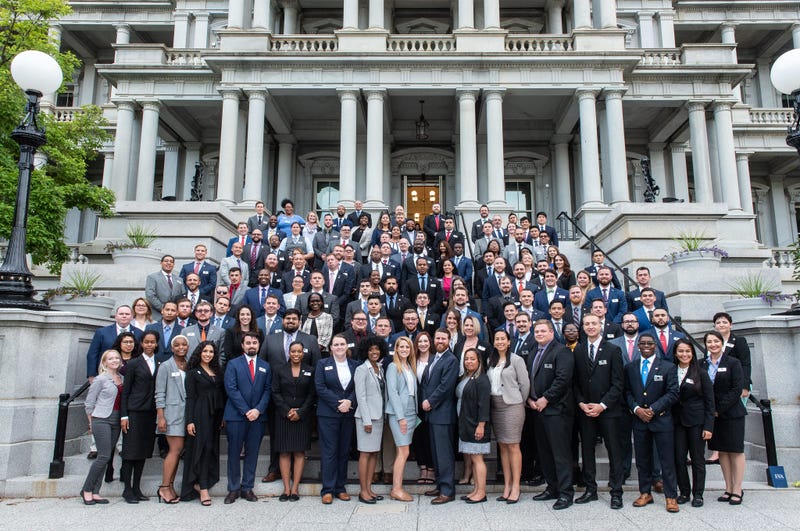
It all started out as a small group of student veterans on a college campus who found each other on MySpace and had a goal to advocate for the GI Bill to better fit their needs.
Following the surge of Sept. 11, the GI Bill didn’t fit the needs of student veterans.

Lacking support, student veterans decided to organize on campuses across the country. These groups began to connect through social media with one another to spread best practices, share success stories, and support one another to further strengthen the student veteran community.
In 2008, members from various chapters formalized this grassroots movement and Student Veterans of America was born.
SVA provides programs, resources, and support to the ever-evolving network of local student veteran organizations. Each of these independent groups joined the umbrella coalition as a chapter.
Due to SVA and its allies, on June 30, 2008, Congress passed the Post 9/11 GI Bill.
Since the founding of SVA, Chapter Leaders have continued to work to increase accessibility to higher education.
More than one million veterans have returned home to pursue a postsecondary degree or certificate using VA education benefits. To meet this need, SVA’s presence at the local and national levels has grown to include more than 1,500 chapters in all 50 states and three countries overseas.
Abby Kinch, vice president of programs and services for SVA, said the nonprofit operates in three primary areas: programs, research, and government affairs.
SVA has programs and events such as its National Conference, the Leadership Institute, and Regional Summits.
“The National Conference is just amazing,” Kinch said. “It helps show veteran students their positions on campus, what they can do and what they have access to.”
The Leadership Institute is a four-day leadership experience.
“We break down what they have learned as chapter leaders and in the military,” she said. “We help build themselves back up in their career and former student veterans and chapter leaders mentor them.”
When it comes to research, the nonprofit does an “SVA Census,” which is an annual survey focused on collecting demographic data on student veterans and SVA alumni to use in discussions with policymakers and the public.
There is no federal or national database that contains demographic information on student veterans.
SVA also works with its allies to provide a number of scholarships for student veterans.
Such scholarships include the Raytheon Missiles and Defense Patriot Scholarship, the Google-SVA Scholarship, and the Comcast NBCUniversal-SVA Scholarship.
Kinch, who received the Comcast NBCUniversal-SVA Scholarship for graduate school, knows what it is like to have to transition from military life to being a civilian and in school.
“When I got out of the Air Force, I had some undergrad under my belt but knew I would go back to school,” she said.
Kinch did go back to school to finish her bachelors degree but wasn’t involved in anything on campus. But once she went back for her masters, that changed.
“A woman came up to me one day and said she had been in the Marines and then dragged me to her student veterans group,” Kinch said.
That paved the way for Kinch to have a different view of college and be a part of organizations on campus.
“I had a totally different experience in grad school because I had regular friends and was involved with organizations and was more engaged as a student,” she said.
After going to that first student veterans meeting, Kinch saw the value of that SVA chapter as a gateway to success.
“I’ve been a part of this organization for 10 years and it’s absolutely life changing,” she said. “We have people on staff who were going to do something different with their career, but once you become a part of SVA, you just want to continue to help and be a part of it.”




